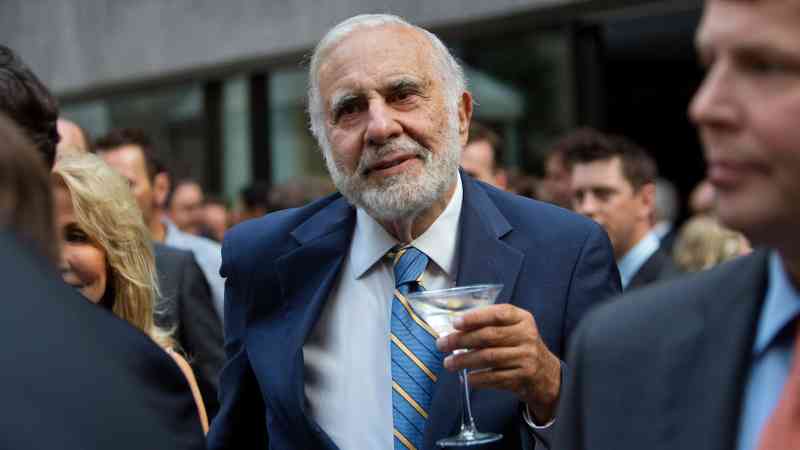Is your investment fund in the dog house?
About £53 billion of investors’ cash is languishing in poorly performing investment funds.
Some 137 funds were included in the Spot the Dog list of underperformers that is published twice a year by the trading platform BestInvest. The number of funds on the list has fallen 9 per cent from the 151 at the start of the year, but is up 145 per cent from the 56 this time last year.
“Some of these funds will be worth persevering with and action may already have been taken to improve performance,” said Jason Hollands from BestInvest, which is owned by the wealth management firm Evelyn Partners. “However, in some cases it might make sense to switch to a fund where the prospects are stronger. It’s a good idea to review your investment portfolio at least once a year.”
The Spot the Dog report names and shames funds that have done worse over the past three years than their benchmark index of stocks. It includes funds that have underperformed by more than 5 per cent.
The August list has Artemis Positive Future fund, an ESG fund, at the top of the doghouse. It underperformed by 71 per cent in the three years to July, relative to the index it aims to beat. A £100 investment in the fund three years ago would have been worth £62 by the end of June.
Ten of the funds included in the list each held over £1 billion of investors’ wealth and collectively accounted for £26.81 billion of underperforming investments. The St James’s Place Global Quality fund, the largest on the list, looks after £10.69 billion for investors and underperformed by 27 per cent relative to its benchmark index in the three years to July, Bestinvest said. Three of the firm’s 45 investment funds made the list.
The Fidelity Global Special Situations fund, which holds £3.34 billion of investors’ wealth, and Fidelity Asia fund, which holds £2.71 billion, both underperformed relative to their benchmark index by 12 per cent and were among the ten largest funds included. Eight Fidelity funds made the list.
Justin Onuekwusi, the chief investment officer at St James’s Place, said: “The performance of our funds is inclusive of our single ongoing charge, which covers the costs for the external fund manager, administration, and advice. Most of the funds that we are compared with in this analysis do not include advice and administration charges, therefore unfortunately it is not a like-for-like comparison.
“In our view investors should remember that past performance is not an indicator of future results, and should approach short-term rankings with a healthy dose of scepticism. Our research clearly shows that selling poorly performing funds in the short term to buy that year’s top performers often negatively impacts investor returns over the medium to long term.”
Fidelity said: “Fidelity manages a wide range of active funds covering a variety of styles, geographies and asset classes, the majority of which have outperformed their benchmark over one, three and five years. We take extended periods of underperformance very seriously and constantly monitor, review and take action to ensure we meet the needs of our clients.”
• Best investment platforms for beginners
Ben Yearsley from the consultancy Fairview Investing said: “We have just had a very good year for mega cap companies such as Nvidia, Apple and Microsoft which have been driving the markets. Global actively managed funds which are not heavily invested in these stocks would be unlikely to outperform their benchmark index.”
Over the past year, seven of the largest US tech companies (Nvidia, Apple, Microsoft, Meta Platforms, Tesla, Amazon and Alphabet which owns Google) have increased in value by 48 per cent. The firms, known collectively as the “magnificent seven,” now account for almost a third of the value of all firms in the S&P 500 Index, which tracks the largest US listed companies, and about one fifth of the MSCI World Index, which tracks the performance of about 1,500 companies in 23 countries.
Environemental, social and governance (ESG) and ethical funds accounted for a fifth of underperformers on the list, Bestinvest said, with the Artemis Positive Future Fund, which invests in companies which meet the manager’s criteria for positive environmental and social impact, the biggest underperformer.
Artemis said: “The ongoing repercussions of Covid, rising energy prices and then soaring inflation and interest rates had a particularly strong impact on these kinds of companies, which were hit much harder in market sell-offs. It has been a perfect storm.”
• How to invest £50,000
“We have had a new team since February, with Artemis head of impact Sacha El Khoury now running the fund. Many changes are being made and the long-term strategy is under review. A key part of the current review is to make the fund more resilient and future returns more reliable.”
Annabel Brodie-Smith from the Association of Investment Companies (AIC) said: “Five years ago ESG was seen as very trendy and high growth. Managers jumped on the bandwagon and would market their funds as ESG to investors. Increasingly investors have grown mistrustful of those claims which has put them off investing. The investment environment has also not been suitable for high growth investments.”
Some 63 per cent of investors said they did not trust ESG claims made by funds, according to a survey of 407 conducted by the AIC between July and August last year, up from 48 per cent in 2021.
In May the Financial Conduct Authority, the city watchdog, introduced rules to prevent greenwashing, where companies make misleading claims about their environmental impact. It said products could be marketed as having a positive impact on the environment and society only when those claims can be backed up with credible evidence.




Post Comment